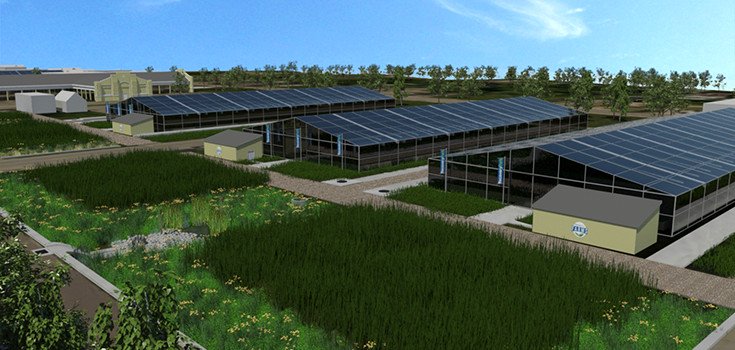Detroit’s Urban Blight Transforming into Food-Producing Landscape

Imagine 60-acres of derelict land owned by the city of Detroit sitting idly. It is a common picture of a city-gone bankrupt, but a new $15 million project is turning a section of Detroit’s urban blot into one of the biggest farms in America.
The Detroit area offers an excellent climate for seasonal agriculture, and the city has plenty of available land. But until now, it sat idly, contributing nothing to a thriving economy and creating zero jobs for some of the poorest people in the nation.
This is where Recovery Park comes in. Utilizing a huge piece of land that has no other offers for purchase, Detroit Mayor Mike Duggan and developers plan to create a 60-acre urban farm (35 acres of which comes from the government through the Detroit Land Bank Authority) to be settled with greenhouses and hydroponic systems for specialty produce.
Recovery Park already operates a pair of smaller urban farms, growing vegetables like radishes, greens, and edible flowers and selling them to restaurants in the city. This project would dwarf those that are already up and running in the city.
The project is not yet fully funded since the city only has $1 million to get started, but the people of Recovery Park have an ambitious goal of breaking ground for the $15 million project this Spring.
If they are successful, the farm will provide jobs to 120 people and help turn some useless land into a thriving agricultural model to possibly transform the rest of the city’s landscape.
Additional Sources:
Featured image from Detroit.Curbed

This is a wonderful story : blight to bloom. Hopefully it will continue to flourish and attract more people into the horticulture industry.
This is lovely. Like the urban barn and rooftop garden projects, Recovery Park will be a source of health and happiness.
Michigan surely needs it now, as the crisis in Flint continues.